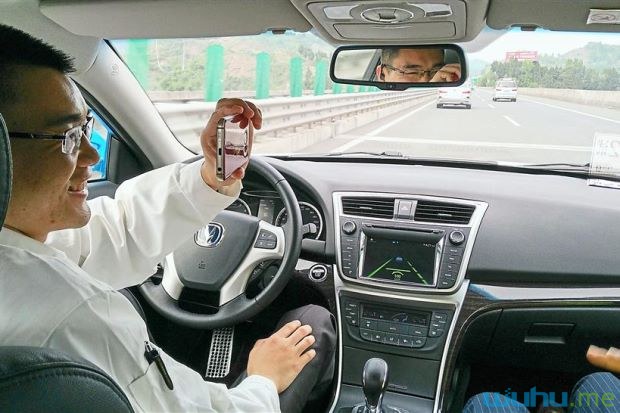Baidu Plans to Test Driverless Vehicles in the City of Wuhu

Chinese Internet company Baidu Inc. is going head to head against U.S. search engine giant Google in the autonomous vehicle industry. The Chinese company recently unveiled plans to launch a trial area for autonomous vehicles in the city of Wuhu located in the southeastern province of Anhui, China.
Baidu, which has great ambition in driverless vehicles, signed a cooperation agreement on Monday with Wuhu municipal government to jointly build a trial operation zone for fully autonomous driving vehicles.
The trial zone, the first of its kind in China, will allow Baidu to become the only company to test autonomous driving in public transportation in Wuhu.
If the technology is proven to be workable, the local authorities in Wuhu are even considering replacing all of the city’s buses and part of its taxi fleet with driverless vehicles in another five years.
“Autonomous vehicles are the future of the auto industry. Instead of being defined by traditional technologies and performance, automobiles in the future will be defined by software,” said Wang Jin, head of Baidu’s autonomous driving business unit.
The establishment of the trial zone is seen as an important step for Baidu to meet its goal of “commercialising driverless technology in three years and achieving mass production in five years”.
The Beijing-based company, which runs China’s largest search engine, has placed great emphasis on artificial intelligence and autonomous driving, as it is keen to diversify its business.
Baidu’s autonomous car, which successfully completed road tests last December on combined road conditions – city roads, ring roads and highways – can run at a maximum speed of 100kph.
Qian Wenying, director of automobile research at Beijing-based consultancy Analysys International, said that the trial zone could provide Baidu a safer place to test its autonomous driving technology in all kind of weather and road conditions.
It will also help the cars “speed up their learning process”, therefore pushing the development of the technology
Earlier this week, Baidu and the municipal government of Wuhu have both signed a five-year cooperation agreement that will allow the company’s autonomous vehicles – including cars, vans and buses – to move about freely around the entire city.
During the first three years of the trial, the driverless vehicles will be exposed to limited areas only, and will not carry any passengers on board. In due course, however, the areas will be extended to include public highways, and “the service will be commercialized to allow some of the three million inhabitants of Wuhu to use it.”, according to a report by BBC.
According to Wang Jing, Vice President of Baidu and head of the company’s autonomous driving business division, the driverless vehicles will then be exposed to the entire city after the five-year period, in which they will blend in with human drivers and “human-driven” vehicles. The Star reported that the local officials of Wuhu “are even considering replacing all of the city’s buses and part of its taxi fleet with driverless vehicles”, if the technology is proven to be successful.
Self-driving technologies seems to be the future of the automotive industry. Major automobile manufacturers such as Toyota, BMW and Volvo have all jumped into the autonomous vehicle bandwagon. During BMW’s 100th year celebration, the company announced plans to launch an autonomous electric car called “iNext” by the year 2021.
During the 2016 Beijing Auto Show, which kicked off in April 25, Chinese Internet company LeEco unveiled its first ever four-door electric sedan called LeSEE EV, which uses a semi-autonomous technology. The electric sedan was designed for the Chinese market and could take on the likes of Tesla.
